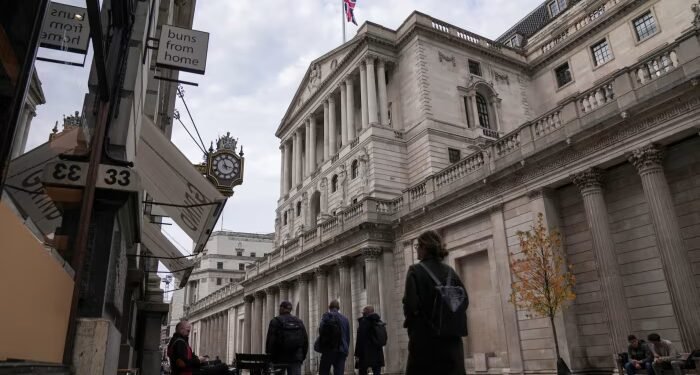Unlock the Editor’s Digest for free
Roula Khalaf, Editor of the FT, selects her favourite stories in this weekly newsletter.
The Bank of England has diluted its planned rules for UK stablecoins in response to industry criticism by allowing some assets backing the digital tokens to be invested in short-term government debt and exempting certain businesses from ownership limits.
But payment industry experts said the BoE’s new proposals, outlined on Monday, were still too restrictive and risked putting Britain at a disadvantage to the US in view of the more pro-crypto approach of President Donald Trump.
Stablecoins are digital tokens that are pegged at a fixed rate of one-to-one to a real currency. A cornerstone of cryptocurrency trading, the global stablecoin market has grown rapidly to be worth almost $300bn.
Some regulators warn they represent a threat to the stability of global finance by taking deposits away from banks, but their supporters say they are a promising innovation that can make payments cheaper and faster.
Presenting its consultation paper on rules for regulating widely used stablecoins, the BoE said it was “considering central bank liquidity arrangements to support systemic stablecoin issuers in times of stress”.
The BoE has been criticised for taking a more cautious approach to stablecoin regulation than other jurisdictions.
But it has watered down its plans, ditching an earlier proposal to require all systemic stablecoins to be fully backed by deposits at the central bank that pay no interest, which critics said would have made launching one in the UK commercially unattractive.
Instead, it said systemic stablecoins would be able to hold 60 per cent of their assets in short-term UK government debt. In an extra concession, those transitioning to becoming systemic would be allowed to hold 95 per cent of their assets in such bonds “to support their viability as they grow”, the BoE said.
“Our objective remains to support innovation and build trust in this emerging form of money,” said Sarah Breeden, BoE deputy governor for financial stability. “We’ve listened carefully to feedback and amended our proposals for achieving this, including on how stablecoin issuers interact with the Bank of England.”
However, some crypto industry executives said this did not go far enough. “The proposed regime still puts the UK at a disadvantage relative to the US,” said Varun Paul, a former BoE official now at digital asset provider Fireblocks.
Tom Duff Gordon, vice-president of international policy at Coinbase, the US crypto asset exchange, welcomed the BoE’s planned rule changes but said it “could go further” by allowing up to 80 per cent of stablecoin assets to be invested in short-term government debt.
The central bank also stuck to its plan to limit UK stablecoin ownership to £20,000 for individuals. But it said certain types of company — including supermarkets and crypto trading platforms — could be exempted from a separate £10mn limit on business ownership.
The proposals were designed to “maintain financial stability and enable systemic stablecoin issuers to operate viable business models”, the BoE said, adding that the ownership limits would be temporary while the financial system adjusts to the new technology.
In an article for the Financial Times last month, BoE governor Andrew Bailey signalled he was shifting to a less sceptical approach on stablecoins. He noted it would be “wrong to be against stablecoins as a matter of principle”, while hailing their potential for “driving innovation in payments systems both at home and across borders”.
Responding to Monday’s consultation paper, Riccardo Tordera-Ricchi, director of policy and government relations at The Payments Association, said the trade body’s “opposition to holding limits doesn’t change but it was good to see the Bank understands exemptions can operate”.
The BoE said its rules would apply only to widely used UK stablecoins that are classed as systemically important by the Treasury. Other tokens, such as those mainly used to buy crypto assets, would be regulated by the Financial Conduct Authority, the UK’s main financial market regulator.
The global stablecoin market is dominated by US dollar-based tokens and was given a major boost after Congress passed the Genius Act in July to create a legislative framework for the digital assets.








